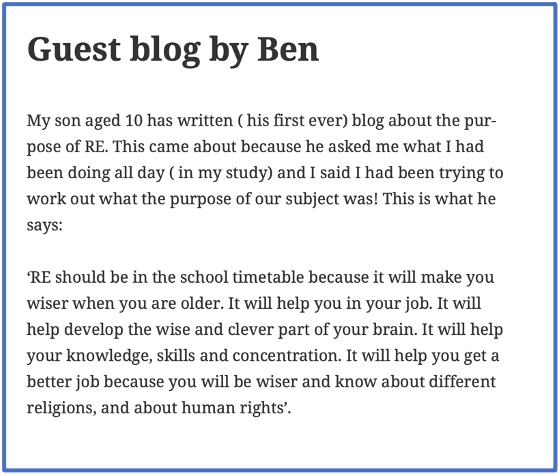We all know that it can be challenging to encourage our students to access beyond what they need to know and to stretch their understanding on content and concepts within their specification. So many of the students that I have taught have a default mode that is often activated when they reach a certain point in their learning. This default mode comes into play when their perception of learning is complete. This can be when a series of questions is complete, when something becomes too challenging or when the last line of an exam question response has been written. My concern in this instance raises the question of how much potential is stifled prematurely and how many students could go further in their learning.
Originally inspired by Doug Lemov in Teach Like a Champion I wanted to create a culture where students realised that the reward for right answers in lessons is higher challenge that takes the form of harder questions and more challenging material. That completion of work translates to the setting and eventual completion of more demanding concepts. What I can say is that this is easier said than done but when my students started thinking like scholars they were taken to places in their learning which was beyond their wildest dreams! In this blog, I will take you on the journey that I went on with my GCSE and A Level classes in getting them to think like scholars in their RE lessons by discussing the implementation and outcome of the scholarship reading programme.
What is it?
The Scholarship reading program is a tool that encourages students to read beyond the revision guide or core text. It works alongside lessons and introduces students to material that is challenging, a primary text and is designed to create that ‘out of your depth’ feeling until the students come to terms with the reading and start to gain a steady footing of mastery. The material that is selected has been anything from extracts of undergraduate journal articles, scholarly texts or scripture.
Implementation
As in any case when you are establishing routines and rituals, the scholarship reading programme is easier to embed from the outset of meeting a new class. This way, students will be accustomed to your way of working and it is something that can be filtered into the lesson, rather than becoming a bolt on at the end of the lesson. In this sense, the teacher can also use it in a flipped learning way. In this instance, the teacher will set the material in advance of a lesson and then the discussion of the scholarly material can be unpicked and analysed when teaching that theme. This works particularly well when teaching the themes because there is a lot of material available, but likewise can be utilised when teaching the study of religions. In the case of the latter, this high challenge material can be pitched by the teacher to the students as material that would not usually be taught until A Level. The advantages of this method are twofold. Firstly, it empowers the student because their teacher has faith in their capability of understanding the material but implementing it in a flipped learning approach allows for higher level of engagement as the students know that the material will feature during an integral part of the lesson.
Lockdown 2.0
Initially, this article was going to be purely based on the physical classroom with face to face teaching being the focus. However, the rapid developments in technology and more specifically, teaching with technology has transcended limits beyond our imaginations. With this in mind, I wanted to share with you how this reading programme could be implemented within a digital setting. During the start of remote learning, my school set up Google Classrooms for students to be able to work remotely. This was the ideal platform to be able to continue the Scholarship Reading Program. In this case a new article was scheduled every week and had a blank document to go alongside it. After the students had read, listened or watched the material, they evidenced their engagement on the document and handed it in for me to check. At the end of each half term, I awarded virtual certificates of engagement to the students and this was something that was also celebrated during our live lessons together.
Outcome
This is the part of the blog where I share the impact of the reading programme and in doing so I’m going to be brutally honest after running this with KS4 and 5 classes for two years. The honest truth is that different classes will take it to different places and more specifically, different individuals within the class will take it to different places. Year 10 and 12 classes have had the highest engagement and have got the most out of it (presumably because I have taught them from the start of the course and this is all they know their GCSE or A Level to be). Year 11 has been mixed with one class not engaging in a single piece of reading despite my best efforts in encouraging them to do so remotely! Despite this, my message is clear and that is to stick with the program and see it for what it is; that being a tool that exposes students to a deeper understanding of their course and something that acts as a yardstick by introducing students to content in RE that will be covered in A Levels and beyond.
